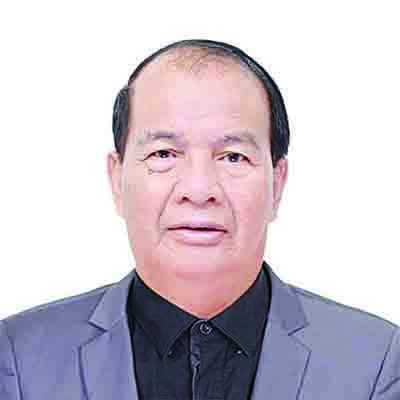 Antonio Casupang
Antonio CasupangBy Ben Garcia
KUWAIT: Around 30 percent of Filipino students in Kuwait failed to enroll in the last two academic years - 20 percent during 2020-2021 and an additional 10 percent in 2021-2022, Principal Antonio Casupang of Philippines International English School (PIES) in Fahaheel revealed. "Because of the pandemic, many parents decided to enroll their kids for online classes, while some parents decided to send their families back home to the Philippines. So, we had an around 30 percent decline in enrollees last year and this year," said Casupang.
Kuwait resumed on-campus classes for private and public schools for the 2021-2022 academic year after a 19-month hiatus. The resumption follows putting in place the necessary health precautions to protect students against the risks of the coronavirus, Assistant Secretary of the Ministry of Education Dr Abdulmohsen Al-Huwaila said yesterday.
 Dr Jesusa V Puno
Dr Jesusa V Puno Principal Dr Jesusa V Puno of the New Kuwait Philippines International School (NKPIS) in Jleeb Al-Shuyoukh confirmed a similar decline in student numbers. "In our school, an almost same number of students failed to enroll since the onset of pandemic, but at least most students are now back for on-campus classes. The pandemic hurt us a lot, but we cannot blame the parents for their decision to enroll their children in schools back in their home country," Puno said.
These two schools cater to the educational needs of the Filipino community in Kuwait - from kindergarten to senior high school. Out of a total of 230,000 Filipinos in Kuwait, 165,000 are domestic helpers, who are unable to bring their families here. Most Filipinos who can sponsor their families are those with salaries of KD 500 and above. Most of the students are children of the 65,000 skilled and semi-skilled Filipino workers, many of whom were affected by the pandemic.
Like other schools, the two Filipino schools have divided their students into two groups to attend face-to-face and online classes alternately every week. "This system is still very new to both students and teachers, but we have equipped our teachers with the tools they need. We are ready for this academic year. Combining traditional and digital methods of teaching is quite tough and challenging, but we have to live with it since there is no turning back," Casupang said.
"Besides, we have to deal with the students differently, as we have embraced the fact that our students are overexposed to computer screens. We have to deal with students who are bored at home with a lack of social skills. Of course, education obtained online cannot be guaranteed, although I can vouch that facilities at PIES conform with the guidelines of both MoE and MoH," he said.
The two principals confirmed some of their students during the pandemic stopped attending school after they were sent home, or their parents too decided to go back home for good. "The challenges that we are facing now are different from the pre-pandemic era. I hope everything will get back to normal by next year," Puno said.
Recently, Minister of Education Ali Al-Mudhaf said the ministry has made all arrangements to ensure the high quality and smoothness of the educational process in the new schooling year. A statistical chart recently posted on the ministry's website put the overall number of schools in Kuwait at 1,146, including 985 public schools and 161 private ones, or 85.95 and 14.05 percent respectively of the total.
The number of school students hit 522,220 - males and females, including 439,365 - or 84.13 percent, in government schools, and 82,855 - or 15.87 percent, in private Arabic schools. The school day in public and Arabic private schools starts at 7:30 am for all stages, and ends at 12:20 pm for kindergarten, 1:00 pm for primary and 2:05 pm for intermediate and secondary stages.











